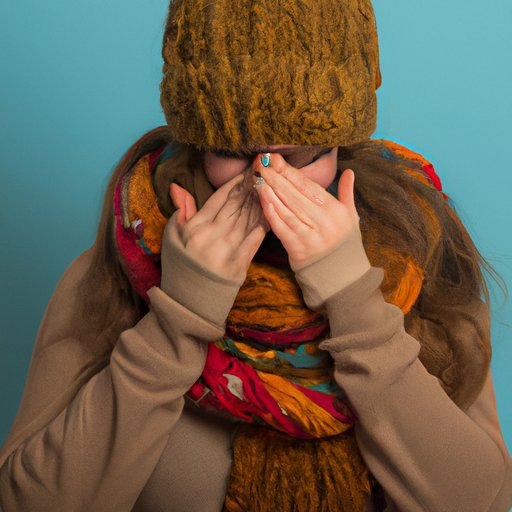
Introduction
Have you ever heard that going out in the cold weather without proper clothing will make you sick? Chances are good that you have, but the truth is that cold weather itself does not make you sick. However, the winter season is notorious for the flu and colds that seem prevalent during this time. How does this happen? What can you do to stay healthy during the cold season? Keep reading to learn more.
The Truth About Catching a Cold in Cold Weather: Separating Fact From Fiction
It is easy to believe that it is the cold weather that causes people to get sick. However, this is not the case. The reason why we see more colds in the winter has nothing to do with the temperature outside and everything to do with how a cold virus operates and how our bodies react to the cold.
One of the most common myths regarding cold weather and sickness is the belief that cold temperatures suppress the immune system. Although exposure to cold temperatures might trigger a stress response, it does not significantly suppress immune function.
Debunking the Myth: Why Cold Weather Itself Doesn’t Make You Sick
The fact is that exposure to the cold itself does not necessarily make you sick. It is not uncommon to be exposed to cold temperatures and never get sick. However, being in a colder environment can affect the immune system, which can make people more susceptible to colds and flu.
Cold air does not cause viruses, but it can make it easier for them to survive and spread. For this reason, it is essential to have good hygiene practices, especially during the winter months, such as washing hands regularly, covering your mouth when coughing, and sneezing in tissue.
The Real Reason You Catch More Colds in the Winter: Exploring the Science Behind Seasonal Sickness
The truth is that the cold and flu thrive during the winter months. According to the National Institute of Allergy and Infectious Diseases (NIAID), cold viruses thrive in low humidity environments and are more stable at colder temperatures. Additionally, in the winter, we tend to spend more time indoors where people are in closer proximity to each other, thus increasing the risk of transmission between individuals.
When it is cold outside, we also tend to stay inside more, and there is less fresh air and ventilation. This is a perfect recipe for allowing viruses to circulate in an enclosed space, making it easier to spread from person to person.
Surviving the Cold Season: Tips to Stay Healthy and Avoid Catching a Cold in Chilly Weather
The good news is that it is still possible to reduce the chances of catching a cold in the winter months.
One of the first things you can do is make sure that you are getting enough Vitamin D. Our bodies naturally produce vitamin D when in sunlight, and if you do not get enough sun exposure, you might be missing out on this critical nutrient.
Avoiding exposure to cold temperatures and taking steps to keep your immune system healthy can also help prevent sickness during the winter months. These include proper hydration, a healthy diet, and regular exercise.
Finally, it is essential to practice good hygiene habits during the winter months, such as washing your hands frequently, covering your mouth when you cough or sneeze, and avoiding close contact with people who are sick.
Breaking Down the Connection Between Cold Weather and the Flu: What You Need to Know
There is a significant difference between a cold and the flu. Colds typically begin with a sore throat, runny or stuffy nose, and slight fatigue. In contrast, the flu comes on suddenly and includes high fever, body aches, severe fatigue, and cough.
Cold weather might not cause the flu, but it can increase the likelihood of contracting this serious respiratory sickness. Just as with colds, flu viruses thrive in colder temperatures, so it is essential to take the necessary precautions to stay healthy. This includes getting the flu vaccine, washing your hands frequently, and limiting your interaction with others who might be sick with the flu.
Beyond the Weather: Other Factors That Influence Your Immune System’s Response to Colds in Wintertime
Although cold weather is a significant factor that contributes to a person’s susceptibility to sickness, it is not the only factor. Other factors that play a vital role include exercise, sleep, and nutrition.
Eating a balanced diet full of vitamins and minerals is especially important during cold months. The body needs the right fuel to produce countless immune cells that fight off sicknesses of all kinds.
Getting enough sleep and rest is also critical for staying healthy during the winter months. Research shows that lack of sleep can have a detrimental effect on the immune system, making people more prone to colds and other illnesses.
Conclusion
In conclusion, the cold weather, in and of itself, does not make you sick, but it can increase your risk of getting the flu or a cold. However, taking the necessary precautions and implementing healthy habits can help you stay healthy throughout the winter months and beyond. Remember to wash your hands regularly, cover your mouth when you cough or sneeze, and get the proper nutrients and rest your body needs.





